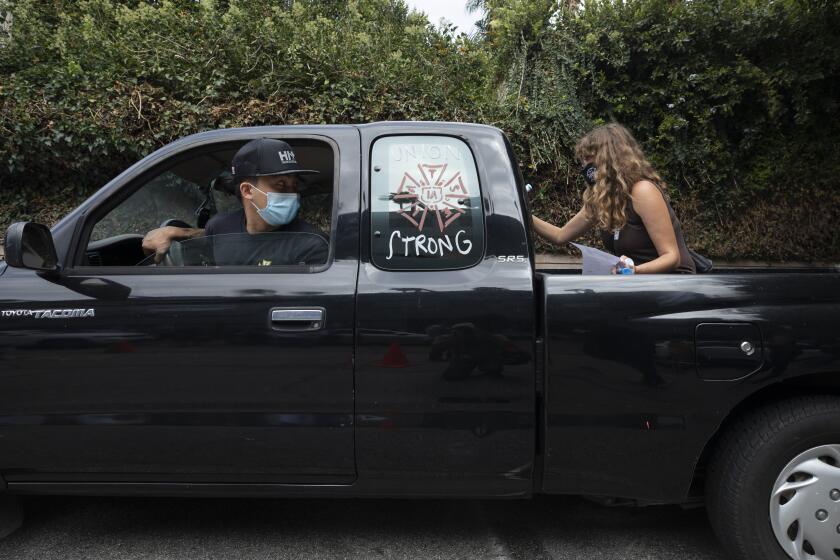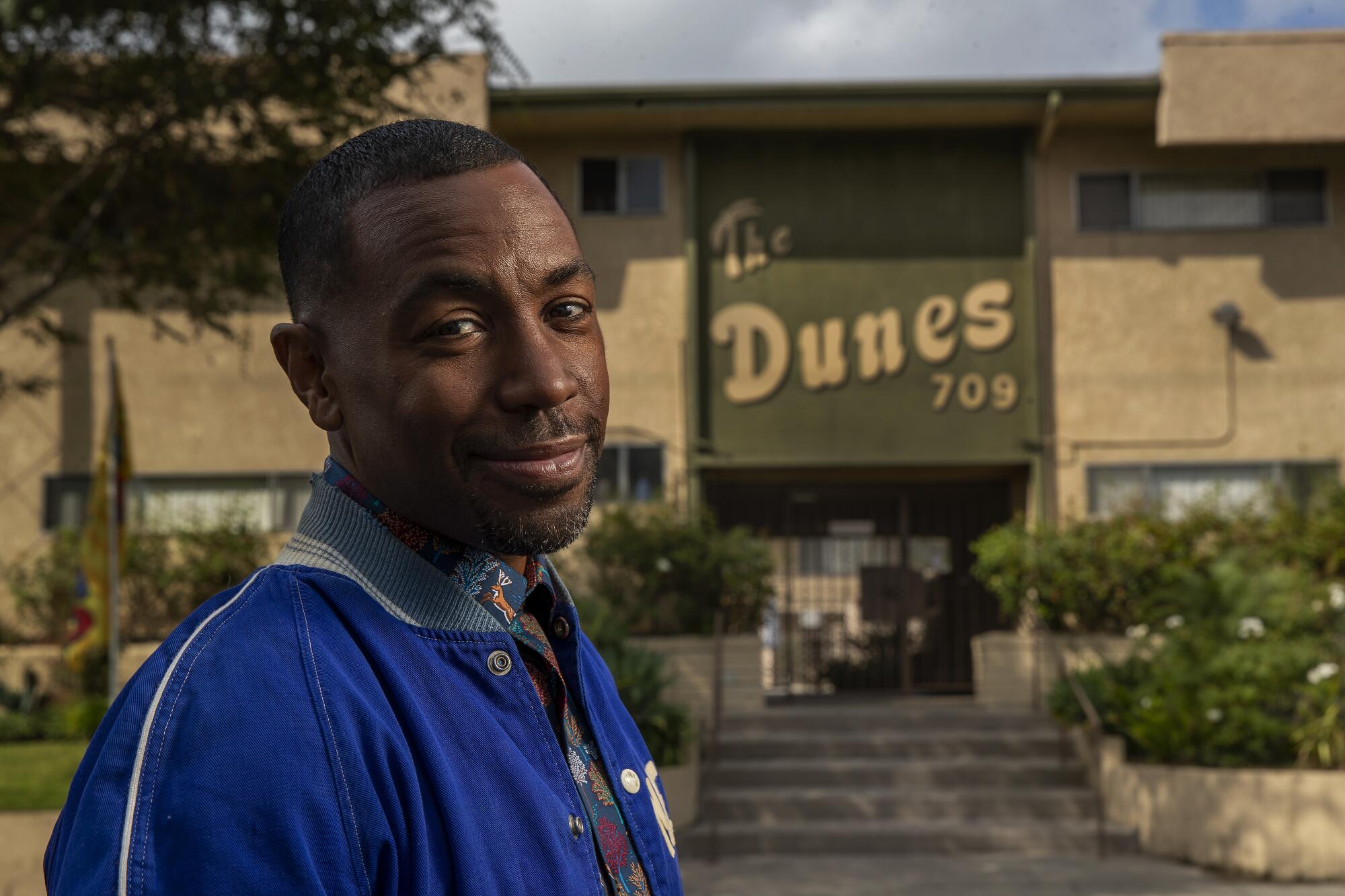
Let’s get it out of the way now: No, there will not be an hourlong episode of “Insecure” in its final season.
The plea for HBO’s comedy to adopt a longer runtime has become a recurring gag that Prentice Penny, the series’ showrunner, has had to contend with — often playfully — over its five seasons. Much to his confusion.
Hollywood’s most influential showrunners talk with The Times about how they broke into the business, the shifting TV landscape, their writing process and more.
“I just responded to someone today about it,” Penny says with a laugh. “It’s a half-hour comedy! Nobody goes: ‘Oh, man, how come ‘Malcolm in the Middle’ wasn’t an hour?’ You might call ‘Succession’ an hourlong comedy because it’s hilarious in the best way; there’s a ton of jokes in that show. But, no, no hour from us. It’s so dope that people love our show like that. But there’s a line between ‘I wish this show was an hour in Season 1’ and then still saying it in Season 5.”
After making its debut in September 2016, “Insecure” transformed creator and star Issa Rae from a YouTube sensation, known for her web series “The Misadventures of Awkward Black Girl,” into an in-demand A-lister. Now, as the series begins its final 10-episode arc on Sunday, it carries a notable legacy: The first premium cable scripted series created by and starring a Black woman, “Insecure” has been revolutionary in the way it depicts a slice of Black life that mirrors the humanity, complexity, sexiness and, yes, awkwardness that’s afforded to shows centered on youthful white casts.
Penny has been a guiding force of that vision from the start. He wrote a letter to Rae, who also grew up in L.A.’s Windsor Hills neighborhood, after reading the pilot. He wanted to take the lessons he learned from the UPN-turned-CW sitcom “Girlfriends,” where he got his start, and pass them on.
He has spent much of this final stretch looking back. Over the summer, as production wound down, Penny posted throwback images from the show’s beginnings on his Instagram account — old headshots of the cast, an image capturing the first shot outside the Dunes apartment complex. It’s in keeping with the show, which opens its final season with Issa and Molly, besties in a slump, attending their 10-year college reunion at Stanford University and trying to find their way back to each other over a weekend of reminiscing. (More on that later.) But nostalgia hasn’t changed Penny’s mind about the decision to end the show now.
“I don’t know if you can watch eight seasons of Issa, like, falling down and walking into walls and sh— like that, not getting her life together,” Penny says. “At a certain point, you’re like, ‘Girl, come on.’ I just think that the DNA of this show holds a certain amount of things that it can carry, and it shouldn’t carry more than that.”
From his home office in Los Angeles, where a collage of Rat Pack images line his wall, the 46-year-old producer spoke over Zoom about “Insecure’s” legacy, dealing with awards “bull—,” and the Issa and Molly conundrum.
Issa and Molly
The friendship between Issa Dee and Molly Carter, played by Rae and Yvonne Orji, has been the linchpin in “Insecure’s” exploration of adulthood. In the show’s fourth season, their friendship was tested, with the two seemingly drifting apart as they each contend with new phases in their lives.
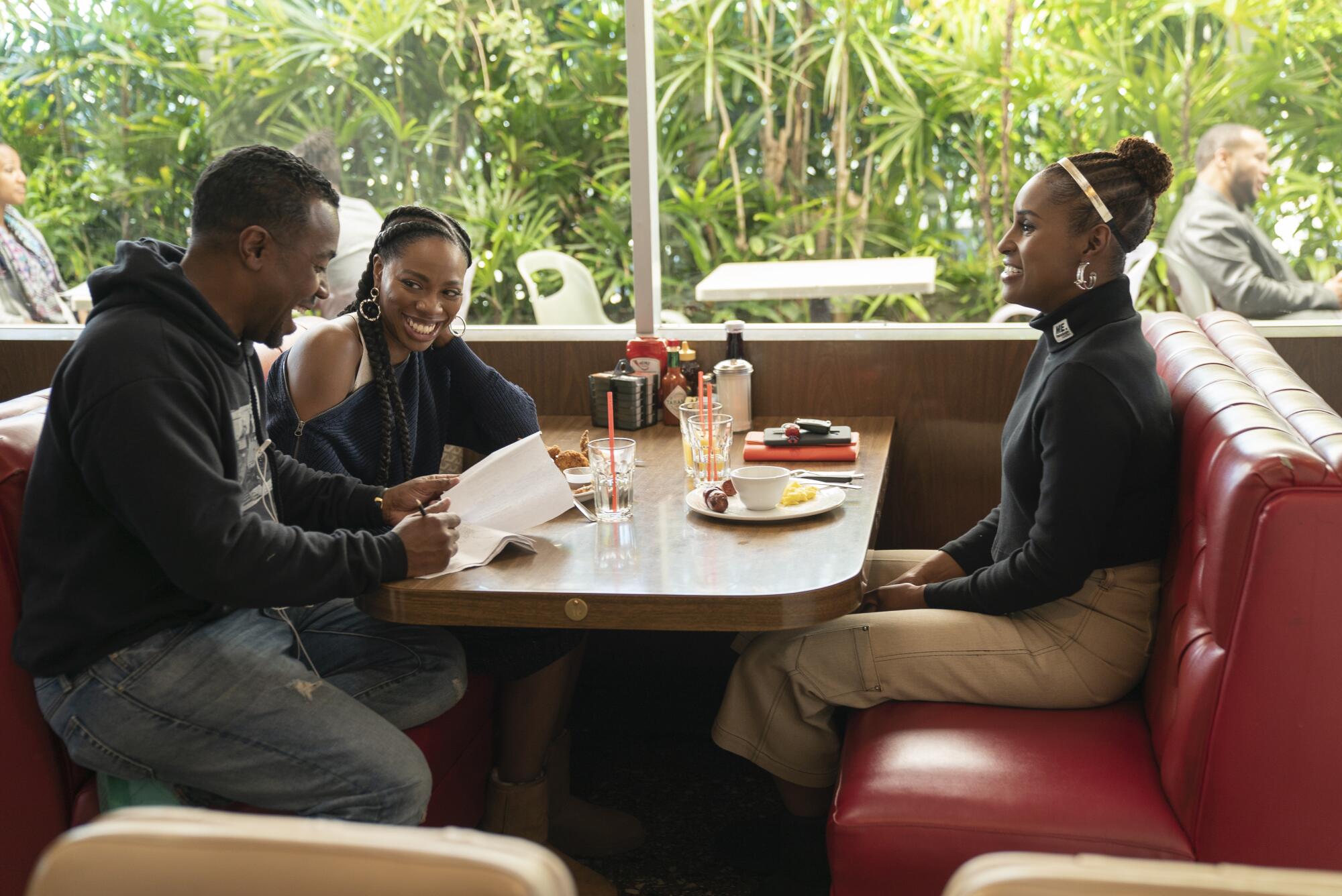
At the end of Season 4, we don’t hear what [Issa and Molly] talked about, but we can certainly extrapolate that there’s some “I’m sorrys” and some catching up on where they both are in life, but we don’t necessarily know what was said. To think that they would be totally healed would be disingenuous and not accurate to how friends are. We wanted to play with that. They’re the love story we always had in the [writers’] room. The writers talked about moments with our friends, when things get kind of dicey and get a little tough. And we felt that we wanted to go back to the birthplace of Issa and Molly. There was something about taking it back to the beginning. They’re still walking on eggshells — like, can I joke about this thing yet? ... And we wanted to play with some of those themes. What does it take to reconcile friendships?
‘The legacy of possibility’
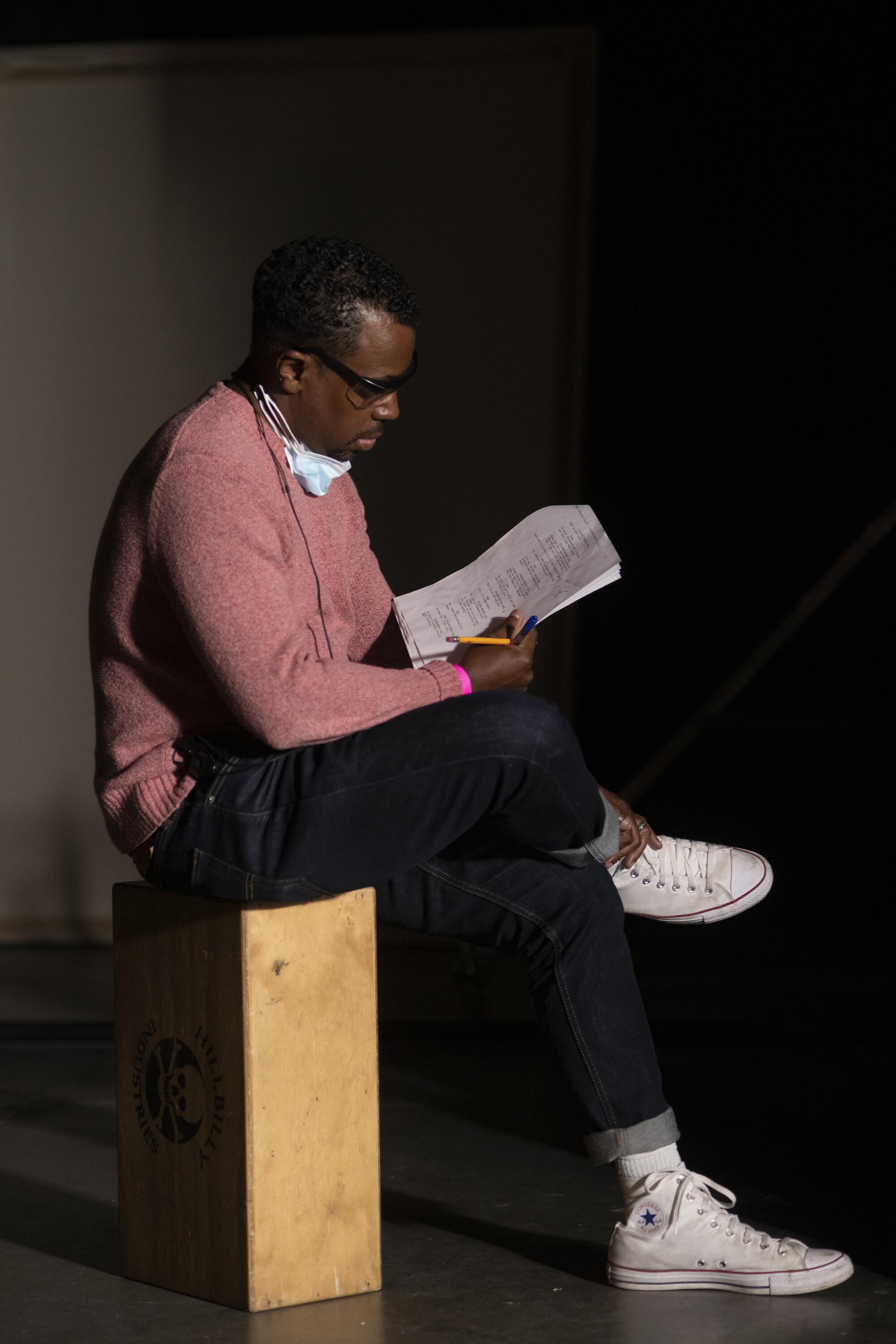
Penny is already mapping his career beyond “Insecure” — he recently signed an overall deal with Disney’s Onyx Collective, which focuses on content by creators of color and underrepresented voices; as part of the deal, Penny will produce, write and direct new projects through his A Penny for Your Thoughts Entertainment banner across Disney platforms. But for Penny, who first felt seen watching “The Cosby Show,” he hopes “Insecure” has left a legacy behind that instills the notion of possibility.
What I want the show’s legacy to be is tied to my hopes for my own personal legacy. I hope that people will talk about our show as being in the same pantheon like “The Cosby Show” or “A Different World” or “Martin,” shows that are super pinnacle about our culture that people hold up as, like, that level — to even be in that conversation is super inspiring and humbling. But also what I would want is for somebody else now — whether they’re in high school, college, elementary school or an adult — to see me and that show, and go: That’s either a voice I know or to say, “They just told their authentic voice, let me tell my authentic voice, because it’s possible.” I hope that it shows people like me that what you want to do is also possible. The legacy of possibility. Because we don’t see a lot of ways, as people of color in this country, that things are possible.
“Insecure” co-star Natasha Rothwell wrote the game-changing capsule episode of the HBO comedy, featuring Issa Rae and Jay Ellis.
‘There’s beauty south of the 10’
Since its debut, “Insecure” has been praised for its depiction of South L.A., emphasizing the beauty and nuance that’s often ceded for stereotypes.

Issa Rae, creator and star of the HBO comedy series “Insecure,” rides through Inglewood and other areas in South Los Angeles featured in the show. (Genaro Molina / Los Angeles Times)
In the same way that Spike [Lee] or Woody Allen or [Martin] Scorsese use New York as a character — and one that shapes who the [other] characters [are] — we wanted to do that for L.A. That dovetailed into, “Well, how have we been seen on screen before?” “What did we see on HBO?” “Entourage.” And “Entourage’s” L.A. is very specific; he’s an actor, so he’s going to be in Malibu, Hollywood, the Palisades, Beverly Hills. Our world doesn’t get seen on that.
Issa and I are both from that [South L.A.] neighborhood, and that neighborhood has shaped who we are. We both have watched the neighborhood change. And the thing that we wanted to do was say, “There’s beauty south of the 10.” But we never see that — it just kind of gets played as a sort of like concrete jungle. But it’s beautiful — those homes are beautiful mid-century homes, beautiful ranch homes designed by the same Black architect who designed Beverly Hills and Malibu [homes].
Actress and writer Issa Rae grew up in South Los Angeles, but in a different world from the bullets and body counts that Hollywood portrayed.
It was about having our environment, our neighborhood, our stores and our restaurants depicted. The characters see the beauty there, so we wanted to capture that cinematically. That was huge.
On network shows, that maybe doesn’t matter — they can film this show in Burbank or whatever. I remember the first season, there were a couple of people connected to the show [who] were like, “Can’t we just fake this for Burbank?” And it’s like, no, we can’t, we can’t.
It defines Issa. Issa is so L.A. Molly is so L.A. They have to be in these environments — we have to see what’s shaping them.
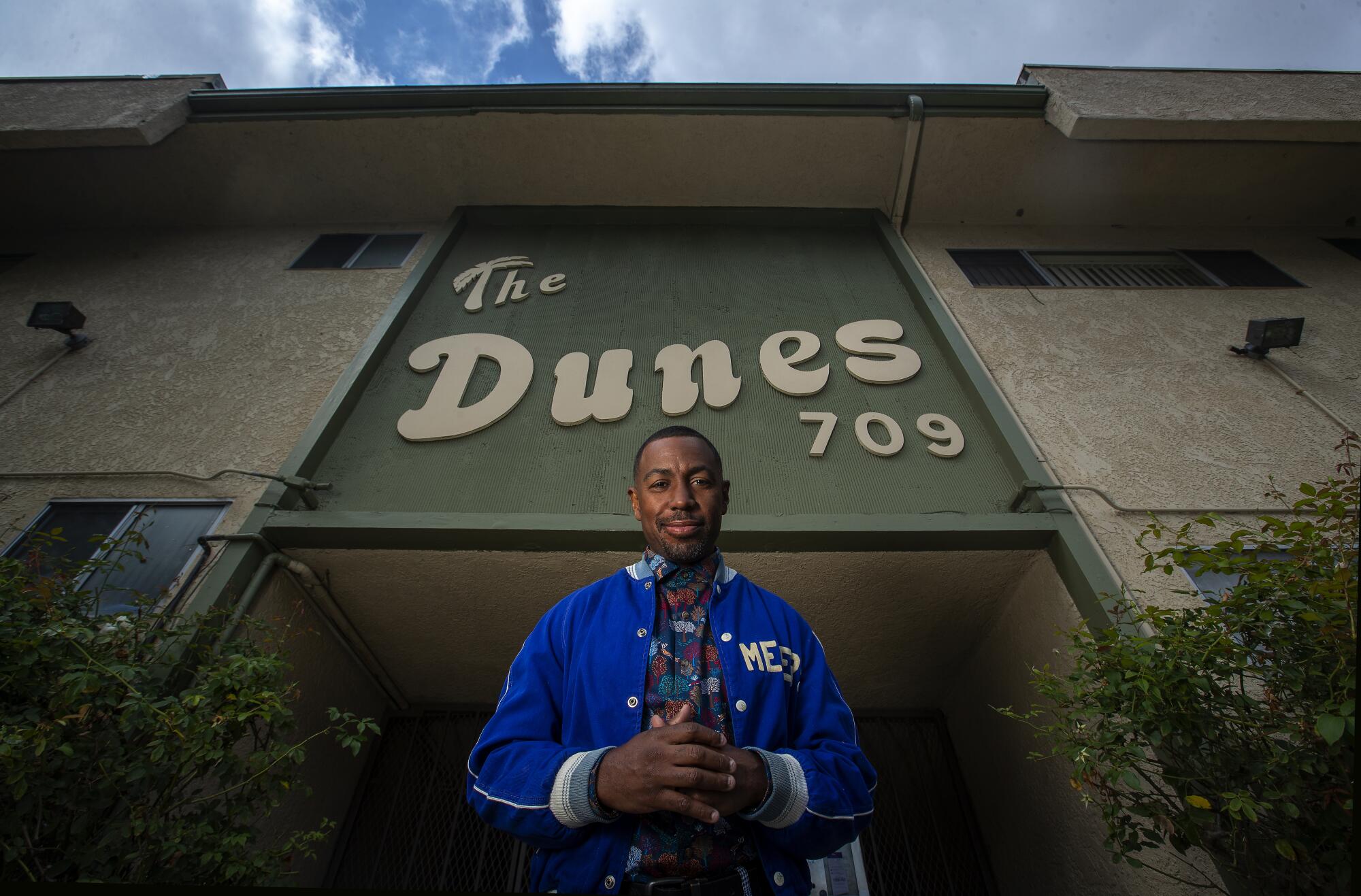
‘It’s all systemic’
“Insecure” has received 11 Emmy nominations since its debut in 2016 — eight of those were in 2020 for its fourth season, landing the show its first-ever comedy series nod. Its sole Emmy win was last year for editing. Fans of the series have contended that the series is overdue for wins in the major categories. For Penny, the recognition isn’t about validation, it represents Hollywood currency, bringing prestige to winners that can translate to bigger paychecks and better funding on future projects.
Before I continued to work my way up and become a showrunner, you think those things are, I don’t say merit-based, but you certainly believe there’s more parity. And what I’ve learned is there are marketing dollars that have to get spent and then the amount [of] panels, and that’s determining the print [press], and that determines what they send to the people who get the vote. The “Emily in Paris” thing was such a big thing of like, “Yeah, they send people to Paris, of course that’s like buying the vote.” You know there’s some of that, but you don’t realize how deep it goes. I’ve been in those conversations about budgets and where it’s gonna go and who we think can win and why and what. Even last year, when they opened up more slots to let in more shows of color, they just put in more white shows. And that was the exact thing where I know it’s all bull—.
Why I care, though, is because my finances and my power get tied to it. If I get nominated I can make more money; if I win, I can get more money. Those same things aren’t true for the BET Awards. Those aren’t in place for the NAACP Image Awards. For me, it’s about having those things when I’m doing another show, and they can say ‘Emmy-nominated producer-writer Prentice Penny’ — that means something when you’re gonna market that show. You’re gonna market it as being ‘from the Emmy Award-winning producer from ‘Insecure.’” And it’s not just restricted to the Emmys. It’s the Writers Guild. It’s baffling to me that we’ve never been nominated for a writing award. We have a Peabody. The fact that we’ve never been nominated for a Writers Guild Award, that’s how I know it’s all systemic.
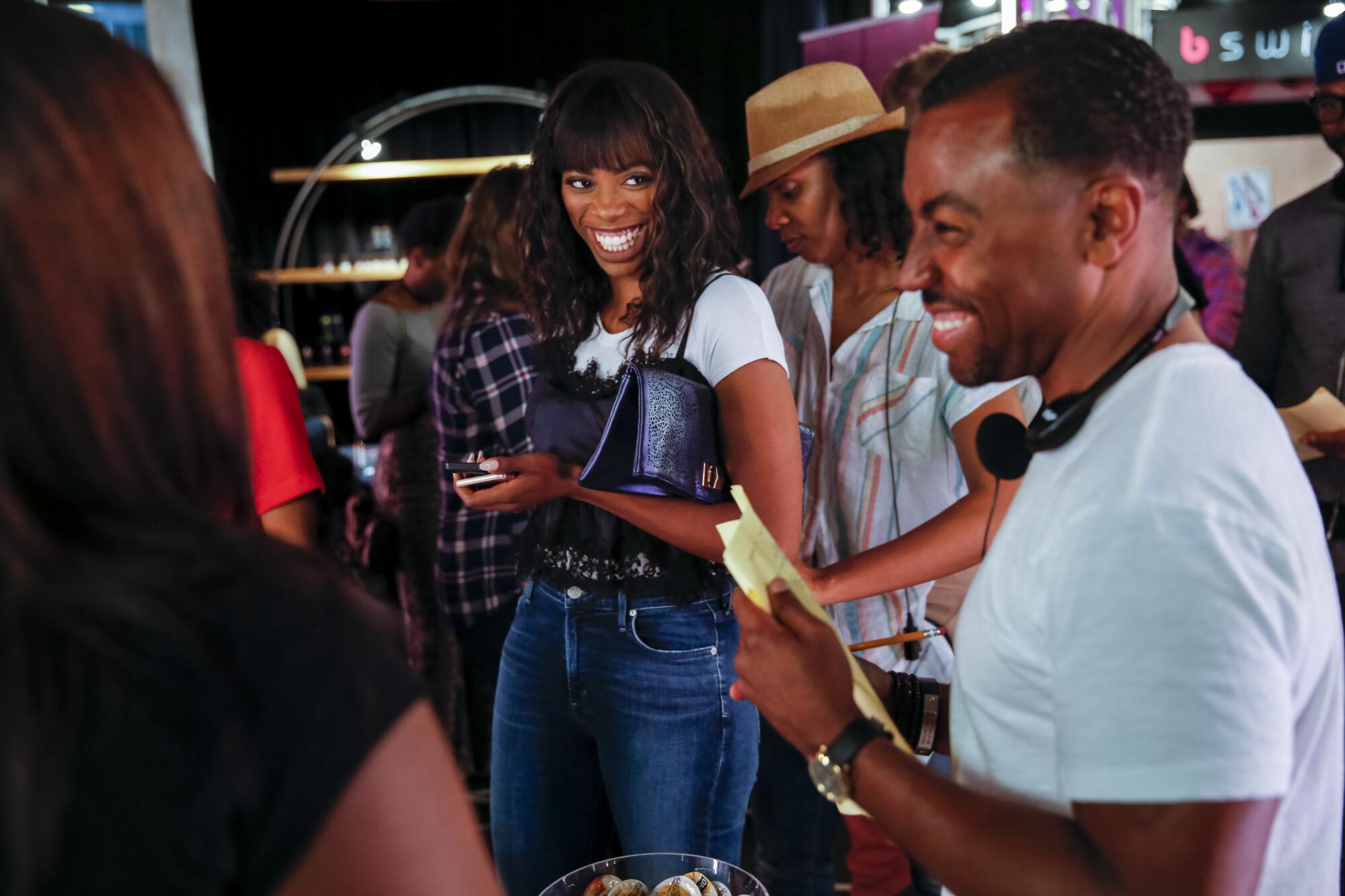
‘Every studio is about the bottom line’
In the weeks leading up to the premiere of “Insecure’s” fifth season, the union representing Hollywood crews — the International Alliance of Theatrical Stage Employees — was preparing for a historic strike that would have disrupted film and television production had it not reached a deal with major studios. Penny was one of the showrunners who voiced public support for crews.
The crew works tremendously hard. And so to be asked to be treated humanely with the things that we all want from just a base level — reasonable hours, pay that is commensurate with the job, pension, all these things — that is only right to me. Every industry that has a ton of money in America — I don’t care if it’s finance, business, sports — the people that have the money and the power never want to give it. The studios of the world have so much money, so the idea of not wanting to compensate someone fairly seems crazy, but typically they’ll try to play us against the crew. They try to draw a wedge. Every industry is always trying to break unions because they know really what it’s about.
Having filmed in other countries, I see what’s possible. We were filming “Uncorked” in France. It was like 10-hour days, a reasonable lunch and reasonable breaks, and once we were done, we were done. It’s just about bottom line, at the end of the day. Every studio is about the bottom line: How can I squeeze out just a million more dollars if I don’t give this guy dental? America is built on grinding the little people.
IATSE reaches a deal on a new contract with the Hollywood studios, which would end a months-long standoff that threatened to trigger a historic strike.
‘It’s wild to think we were all in one room’
A graduate of USC’s screenwriting program, Penny’s journey in TV has led him to sets like “Scrubs,” “Happy Endings” and “Brooklyn Nine-Nine.” But he got his start in Hollywood writing for “Girlfriends,” the beloved comedy series from Mara Brock Akil about a group of Black women navigating adulthood, alongside other notable alums: Kenya Barris (“black-ish”), Karin Gist (“Our Kind of People”), Regina Hicks (“The Upshaws”) and Lena Waithe (“The Chi”).
I went to USC, so I didn’t go to an HBCU [historically Black colleges and universities], but the way my wife talks about HBCUs and her friends that go there, [“Girlfriends” is] the closest experience I think I’ve had to being in an environment that is run by us, that is encouraging us to be us and wants us to win. And that was really from Mara down. “Girlfriends” was like a master class every day with so many amazing talents. My cousin goes to USC film school right now, and I was telling him who was on “Girlfriends” when I was there; it was not only Karin, but Regina Hicks, Kenya Barris; Lena Waithe was a writer’s assistant. You think about how many of us shaped Black Hollywood 20 years later, it’s wild to think we were all in one room.
I feel like your first show really sets the tone for how you approach the business. Almost like growing up in a family ... anything that’s dysfunctional you’re either gonna pick it up or you’re gonna be so repulsed by it. Just watching Mara delegate; trust people; hire people that she felt were just as smart as her if not smarter; assemble a different array of voices and not just kind of similar kinds of people; just understand that the showrunner’s job is like not even really writing as much you’re managing. I now have my own process and my own way to do it, but it was such a master class every day.
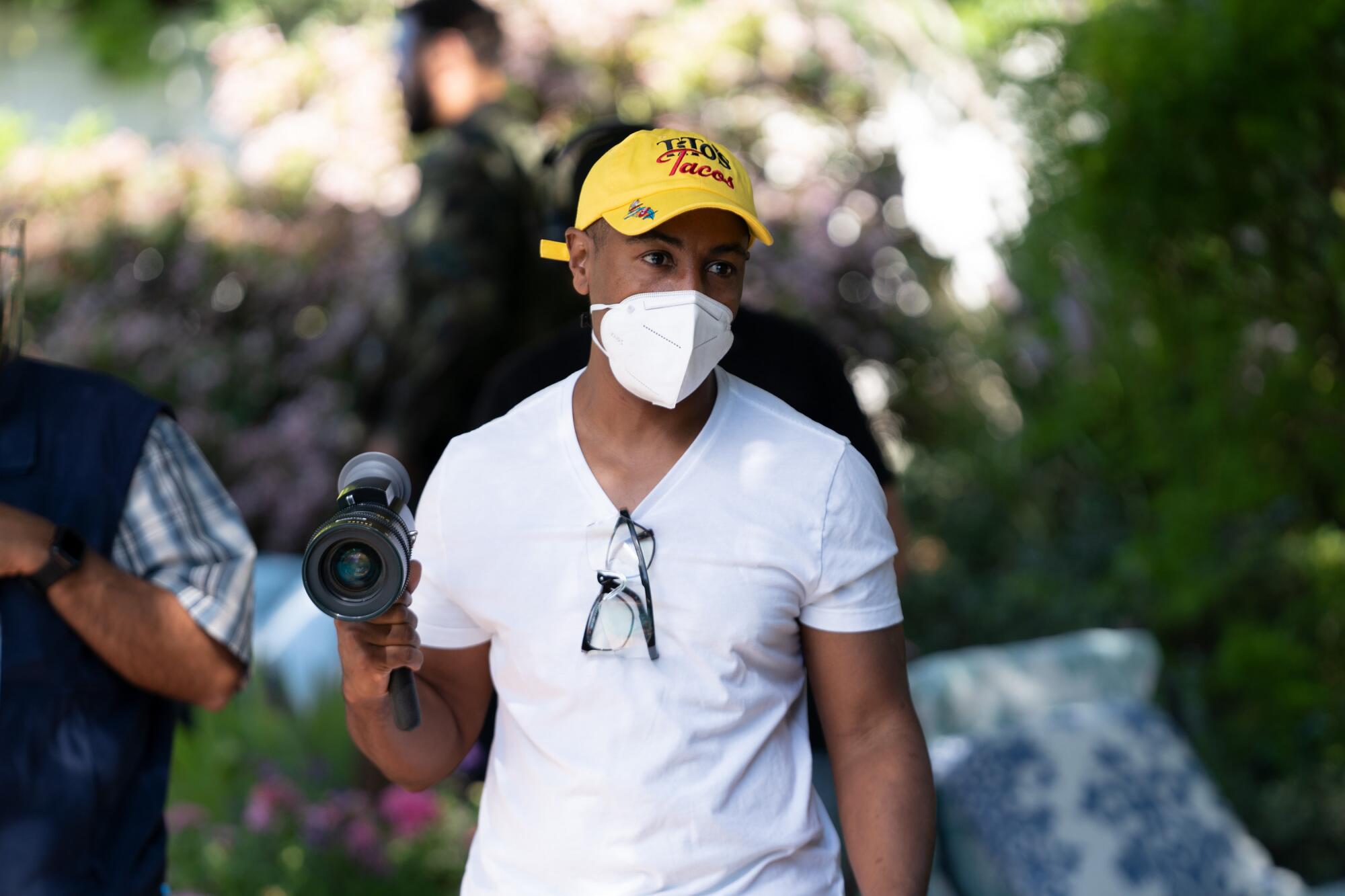
I do remember my worst day there that forever shaped my approach as a writer joining a room that’s already been on the air for a bit. I was so excited and so thirsty — I’m the new fly in the ointment. There’s inside jokes and you want to be a part of that, but you obviously don’t have the history yet. I remember I was at lunch and I was talking to one of the EPs [executive producers], and I was just being super extra. As I was talking, I remember almost floating outside of my body and watching myself. It was like I was two separate people. And it hit me after that: Look, these people hired you; you are going to sink or swim, but you’re going to be you. You’re going to swing the bat, and if it doesn’t work out, it won’t be because you’re not being who you are. So, like, chill. That laid so much groundwork for me; almost no matter what environment I went in, or what show, I was always comfortable with me and what I thought I brought to the table.
More to Read
The complete guide to home viewing
Get Screen Gab for everything about the TV shows and streaming movies everyone’s talking about.
You may occasionally receive promotional content from the Los Angeles Times.
